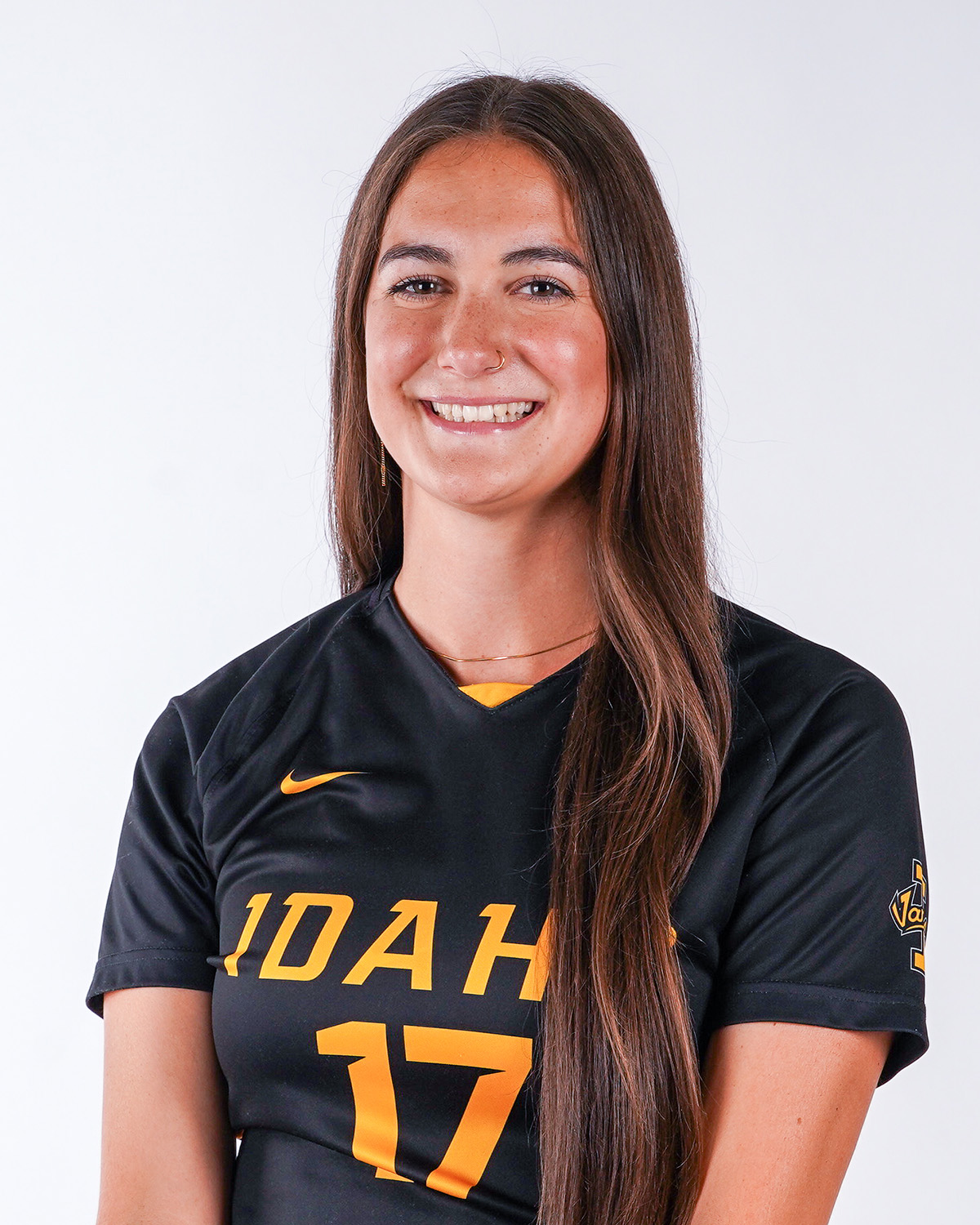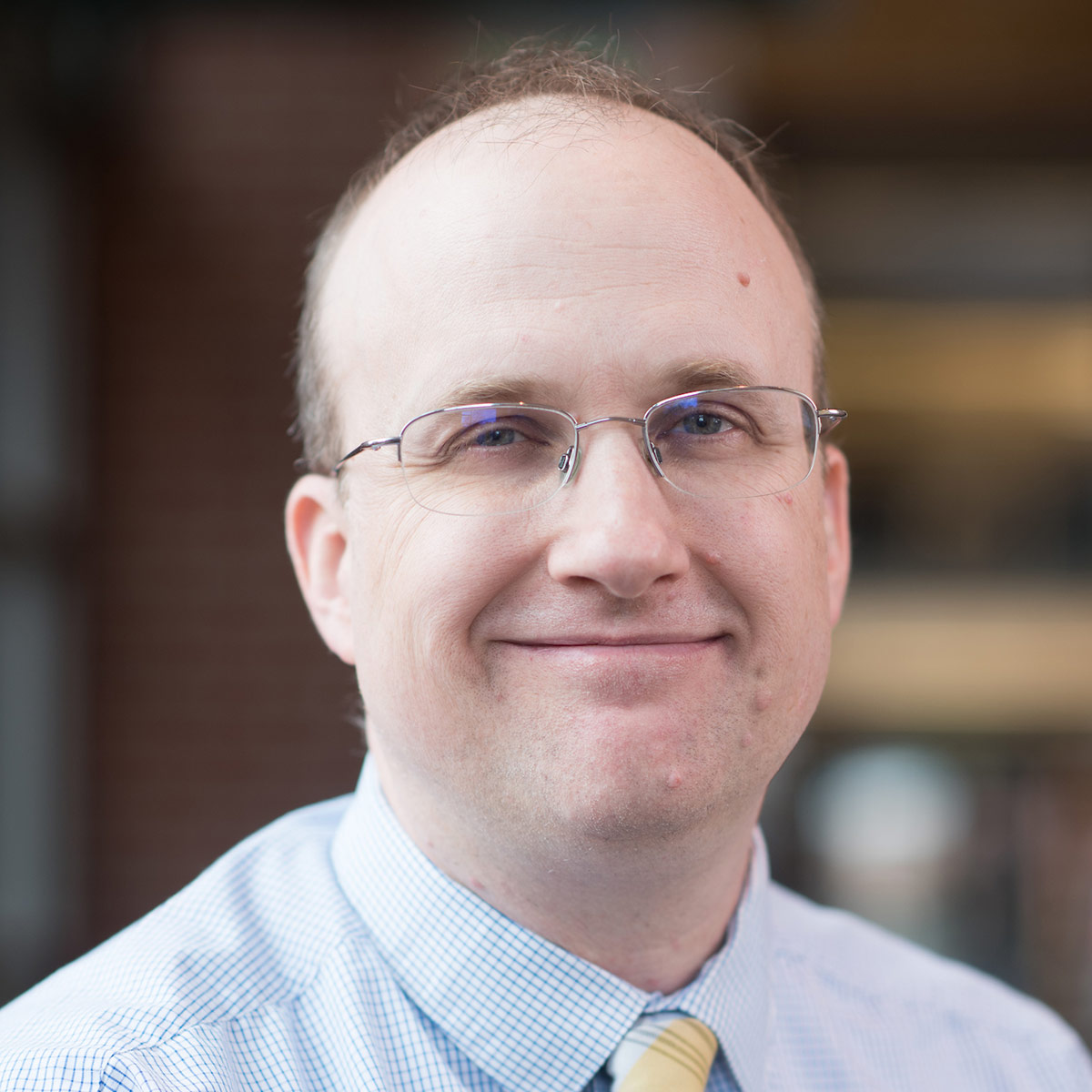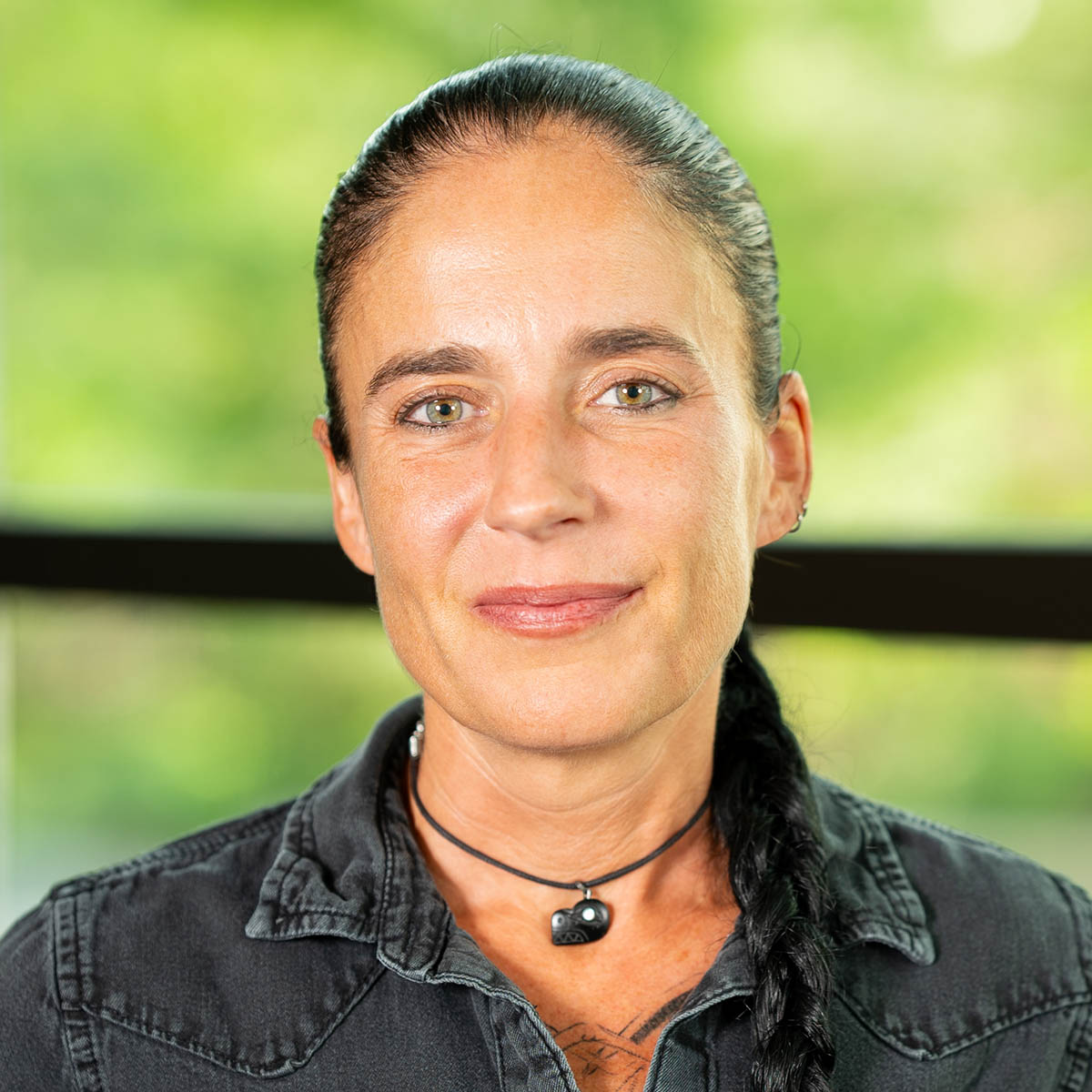Kicking goals on and off the field: Building a future in criminology
Growing up in a family of teachers and social workers, Rebekah Reyes always knew she wanted a career helping those around her. When she was recruited to play soccer at University of Idaho as a high school junior, she saw an opportunity to combine athletics with a career path driven by purpose.
Drawn to U of I’s criminology and sociology programs, she pursued a double major, balancing the demands of collegiate soccer with a rigorous academic schedule. Her drive to make a difference pushed her to accelerate her studies, earning her bachelor’s degree in just three years.
Now a graduate student earning a Master of Science in the criminology program, Reyes reflects on her journey, the transformative experiences of working with incarcerated students as part of her master’s program and what’s next after graduation.

What motivated you to pursue a master’s degree in criminology after completing your bachelor’s degree?
“I wanted to take this class called the Inside-Out Prison Exchange Program that is offered at U of I. I heard about the program, applied for it, interviewed and got a spot in the class. I took it as my senior capstone, and it was a very influential class that shaped the trajectory of what I wanted to do.
It really opened my eyes to the importance of getting a master’s in criminology and the different things that you can do with the degree. I think with social sciences, a lot of people are like, ‘Well, what do you do with that? Where do you go from here?’ so that was a very transformative class.
But my undergraduate experience, especially, is what pushed me toward pursuing my master’s in criminology and staying at U of I.”
How did Inside-Out Prison Exchange Program transform your learning experience?
“Inside-Out is a unique experience where, once a week during the semester, outside students carpool to the Orofino prison, which is about an hour and a half from campus, and we spend three hours in the classroom with incarcerated students. We have a class on a topic related to criminology, and the topic actually changes each semester. Last semester we talked about cults and crime, and this semester we’re talking about human exploitation.
Students go into the class not knowing what to expect, and we talk about some pretty important and complicated topics. Inside-Out has opened my mind and, I think, the minds of other students to different perspectives and interpretations of the readings that we do. It’s a safe space where people can open up.
And, while there is the academic side to Inside-Out, I think being able to spend time with students from different backgrounds, especially students who are currently incarcerated, gives you such a different perspective on the institution of corrections and on criminology itself. You get to build relationships with individuals you never thought you would get to interact with.
I loved the class, so I ended up going back and taking it again as a grad student. This semester I am now a teaching assistant. U of I is actually the only university in Idaho that offers the Inside-Out Prison Exchange Program.”
You also participate in research and internships. What kind of hands-on experiences have been most impactful?
When looking for an internship opportunity, I reached out to Joseph De Angelis, [associate professor of criminology and sociology]. We talked about my interests, what I wanted to learn and what I hoped to gain from the internship. He had me reach out to a few people.
He’s very well-connected and knows what other students have done and what opportunities are available. He actually put me in contact with the coordinator of Latah County’s Mental Health Treatment Court. De Angelis really opened that door for me and supported my journey in finding an internship that suited what I wanted to do.
I was also given the opportunity by [Associate] Professor Omi Hodwitz to co-author a chapter for a book with an incarcerated author, which is hopefully going to be published in 2026. I’ve had many experiences working with incarcerated individuals, but this opportunity allows me to work more closely with someone and do research to contribute to a book chapter that will hopefully be published.”
Joseph De Angelis
Associate Professor
What stands out to you about U of I’s criminology program and the support you’ve received?
“I have been given so many opportunities to go beyond the required classes and to get a full and well-rounded learning experience. All of the faculty members I worked with have been extremely willing to help me find something that I want to accomplish and help me achieve that goal. When I was looking for an internship, DeAngelis found me an internship within a week or two.
With the online version of the criminology program, there was one class where I missed the first six in-person sessions due to being an athlete, and the ability to join virtually helped me keep up. At the undergraduate and graduate level, U of I will help support students in whatever way they need support.”
What’s next after you graduate?
“I’ve continued working with the Inside-Out program as a TA, so that’s been a very different experience exposing me to the teaching and educator side of criminology. I am also doing my thesis on prison education. In my internship with specialty treatment courts and mental health and drug courts, I’m getting more of a practitioner’s experience. I think treatment courts are incredible. They’ve impacted so many lives for the better. So, I have these two avenues that I could pursue, and I haven’t quite picked which one yet.”









